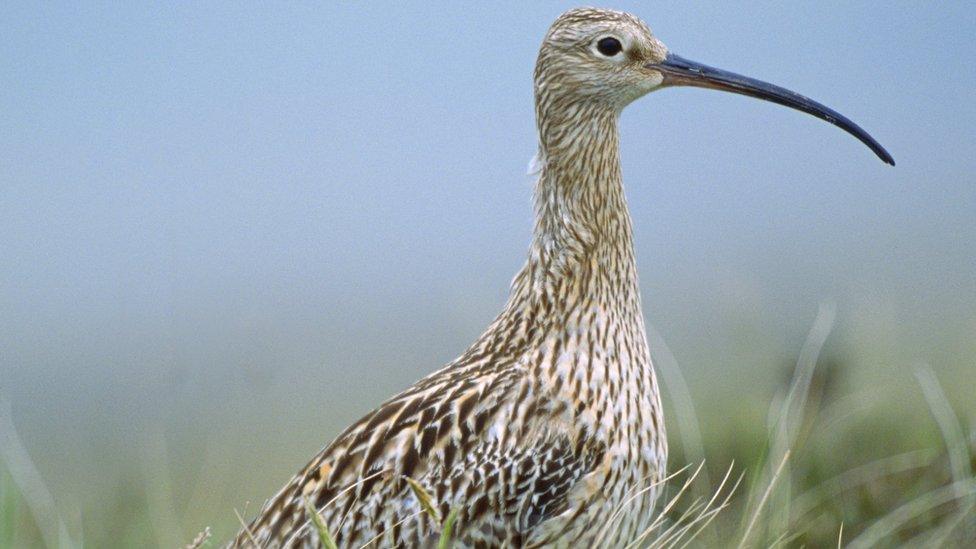Curlew should be priority species, says RSPB Scotland
- Published

The UK is thought to have about 68,000 breeding pairs of curlews
Curlews should be the highest conservation priority bird species in the UK, according to RSPB Scotland.
The UK has 27% of the world's breeding curlews but numbers of the wading birds have fallen by 43% since the mid-1990s, the charity said.
The RSPB made its call following a new report, Birds of Conservation Concern, which has listed curlews as a bird of "highest conservation concern".
The UK is thought to have about 68,000 breeding pairs.
Loss of habitat, climate change and predation are thought to have led to declining populations.
'Big impact'
Dan Brown, conservation adviser with RSPB Scotland and lead author of the new report, said falling curlew numbers was a "major concern".
He said: "We are responsible for more than a quarter of the world's population in the UK, so the large declines currently occurring may be having a big impact on the global population.
"On this basis, the curlew emerges as our highest priority species from a global perspective - conservation success in the UK will go a long way to helping secure the global population.
"We also approach this work acutely aware that, sadly, two close relatives of the Eurasian curlew - the Eskimo curlew and the slender-billed curlew - are highly likely to have become extinct in recent decades."
'Scottish hills'
Andrew Douse, senior ornithologist with Scottish Natural Heritage, said: "The drop in curlew numbers demonstrates well a more general issue: a worrying decrease of many upland birds, all of which have large populations across the Scottish uplands.
"Familiar species such as merlin, whinchat, grey wagtail and dotterel have all declined. These changes likely relate to habitat changes, climate change and in some cases, predation.
He added: "We're working hard to understand the causes of these changes to make sure we conserve these important birds of the Scottish hills and mountains."